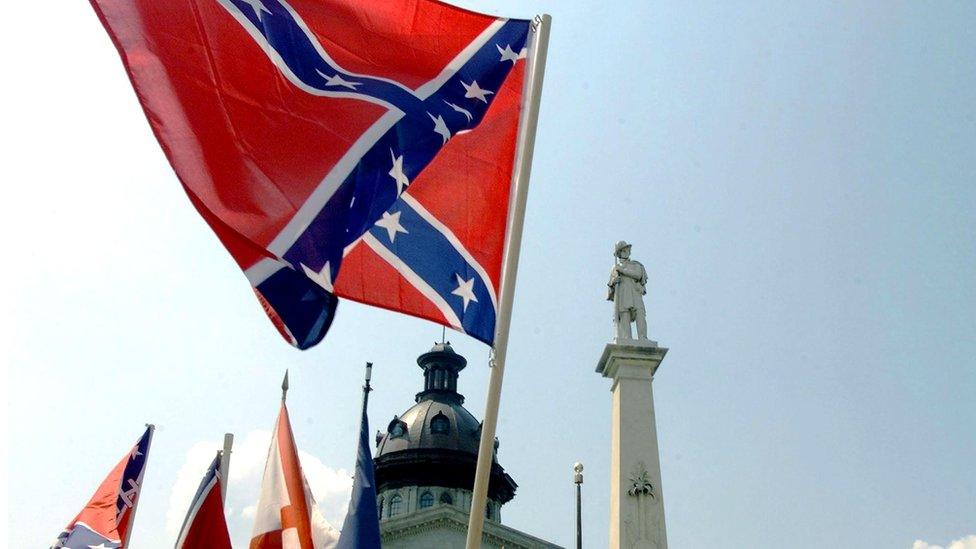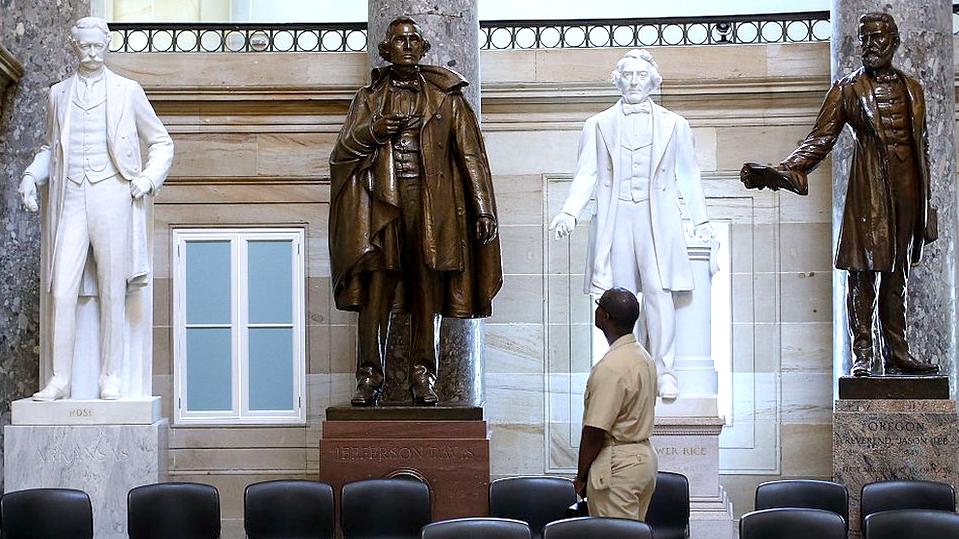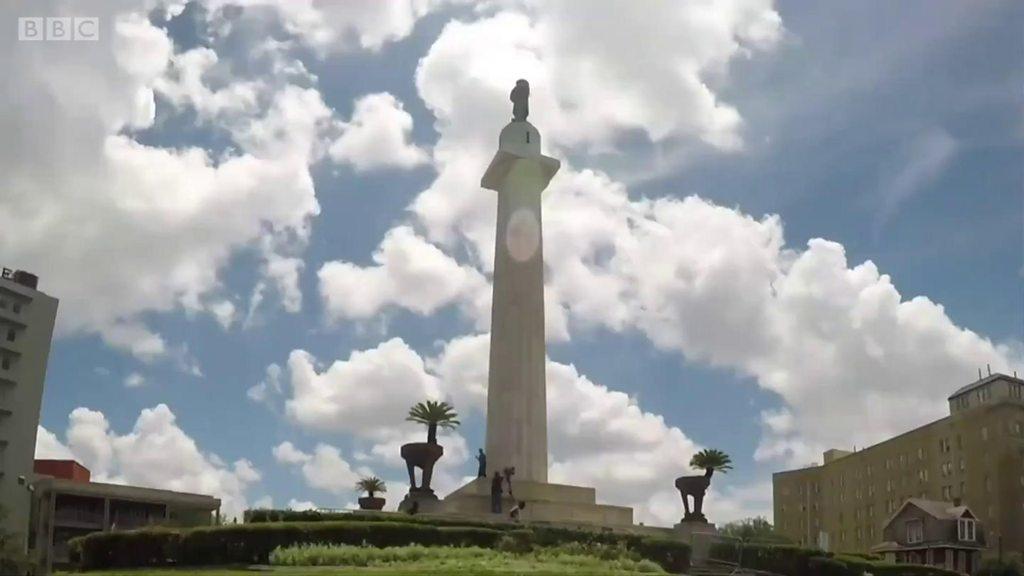Plan for Confederate 'black troops' statue baffles historian
- Published

The Confederate flag flew on South Carolina's capitol grounds until 2015
As US cities tear down Confederate monuments, South Carolina lawmakers want to erect a memorial - to African-American rebel troops.
A historian, however, says no black soldiers fought for the Confederacy.
Republican state representatives Bill Chumley and Mike Burns have proposed a bill to build the statue.
Mr Burns has said, external such a "monument can help educate current and future generations of a little-known but important part" of state history.
He added: "These African-Americans, like many of their Caucasian contemporaries, stepped up to defend their home state during a tumultuous time in our country's history. Their service has largely been overlooked or forgotten."
Why do Confederate statues divide the United States?
Mr Chumley said the plan was intended to honour any African American who served in the Confederacy, whether or not they picked up a gun to fight, according to State newspaper, external.
"We are all learning a lot. The purpose of the bill is education," he said.
But University of South Carolina history professor emeritus Walter Edgar told the paper that no black people fought for the pro-slavery South.
"I have seen no documentation of black South Carolina soldiers fighting for the Confederacy," he said.
Racism in the US: Is there a single step that can bring equality?
Professor Edgar, who wrote South Carolina: A History, said the state had even turned down free blacks who wanted to volunteer to fight during the US Civil War because they didn't want to arm African Americans.
No black people served as soldiers and the only African Americans in the Confederate army from South Carolina were either slaves or free blacks forced to work as servants or in the kitchen, according to the academic.
There is debate among historians over this issue.
John Stauffer, a professor of African-American studies at Harvard University, says there were Confederate black soldiers.
He has previously estimated, external that between 3,000 and 6,000 African Americans served in the rebel ranks, possibly because they were promised freedom by plantation owners.
Professor Stauffer has calculated that another 100,000 or so black people supported the Confederacy as labourers and servants, building fortifications and batteries.
The recent movement to erase Confederate iconography - including flags and monuments - accelerated after the 2015 shooting of nine black churchgoers in Charleston, South Carolina.
Lawmakers voted to remove the Confederate flag from the state capitol grounds after the killings.
Mr Burns did not support the removal and explained his position in an op-ed in USA Today, external.
- Published17 August 2017

- Published15 August 2017
